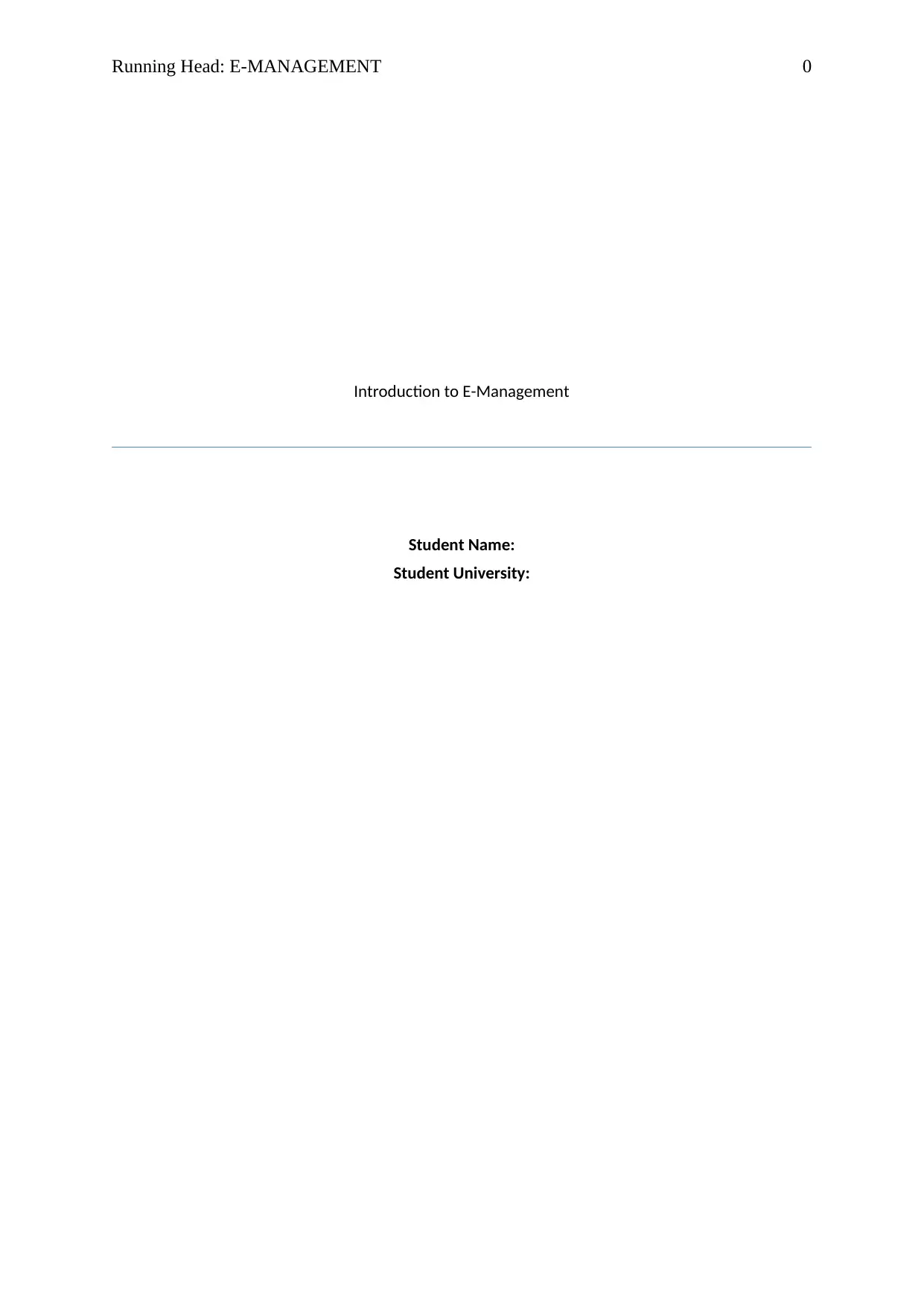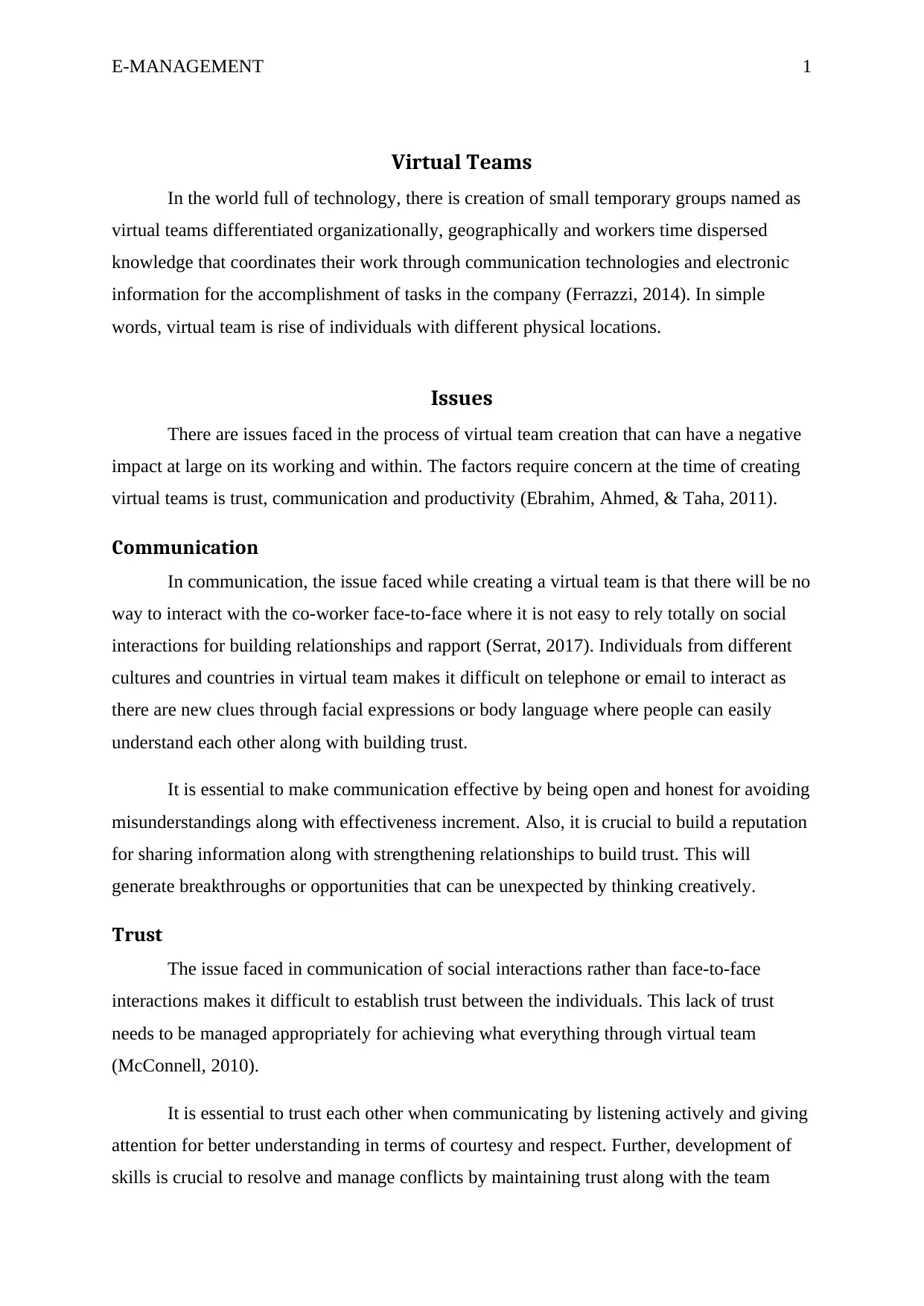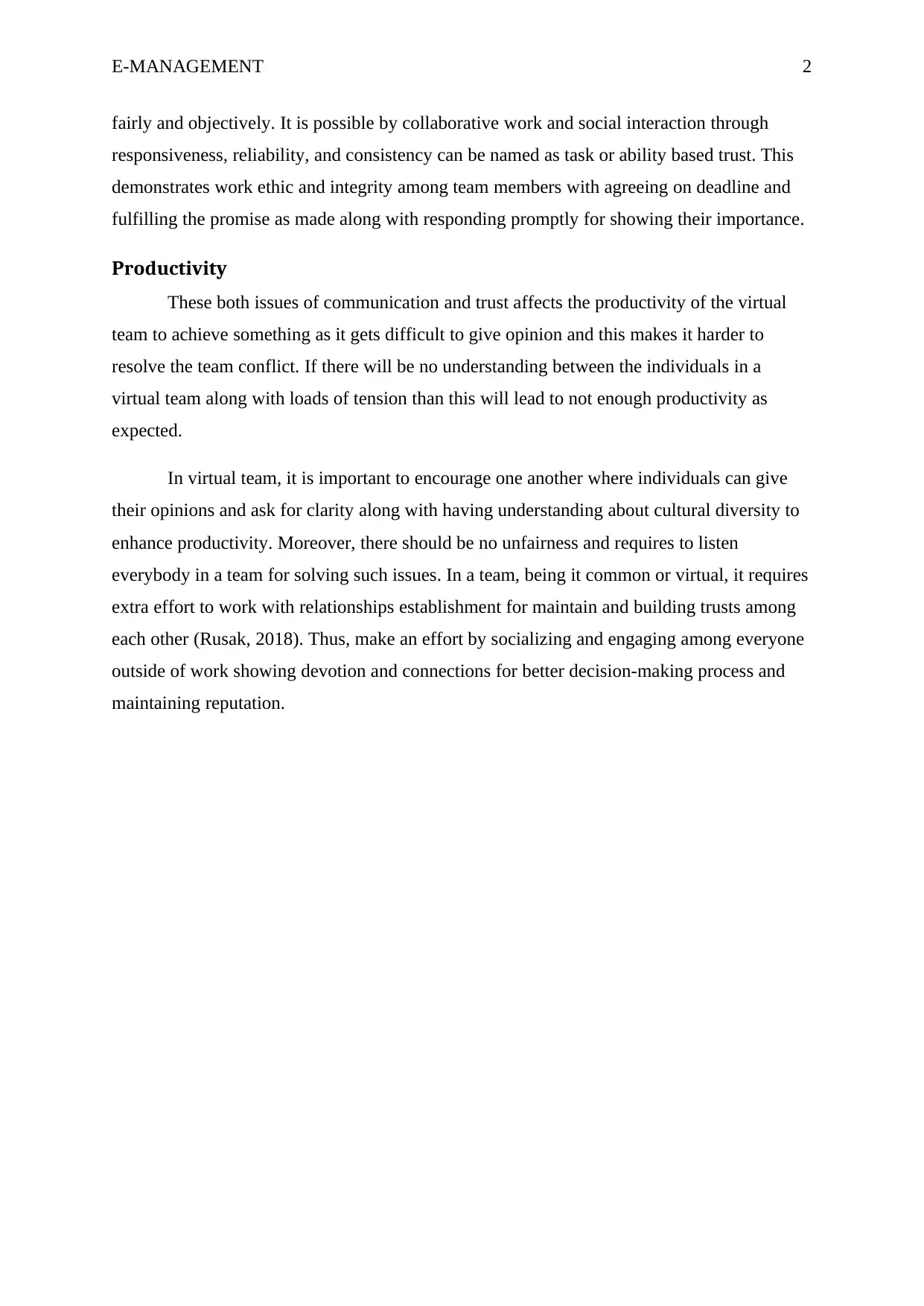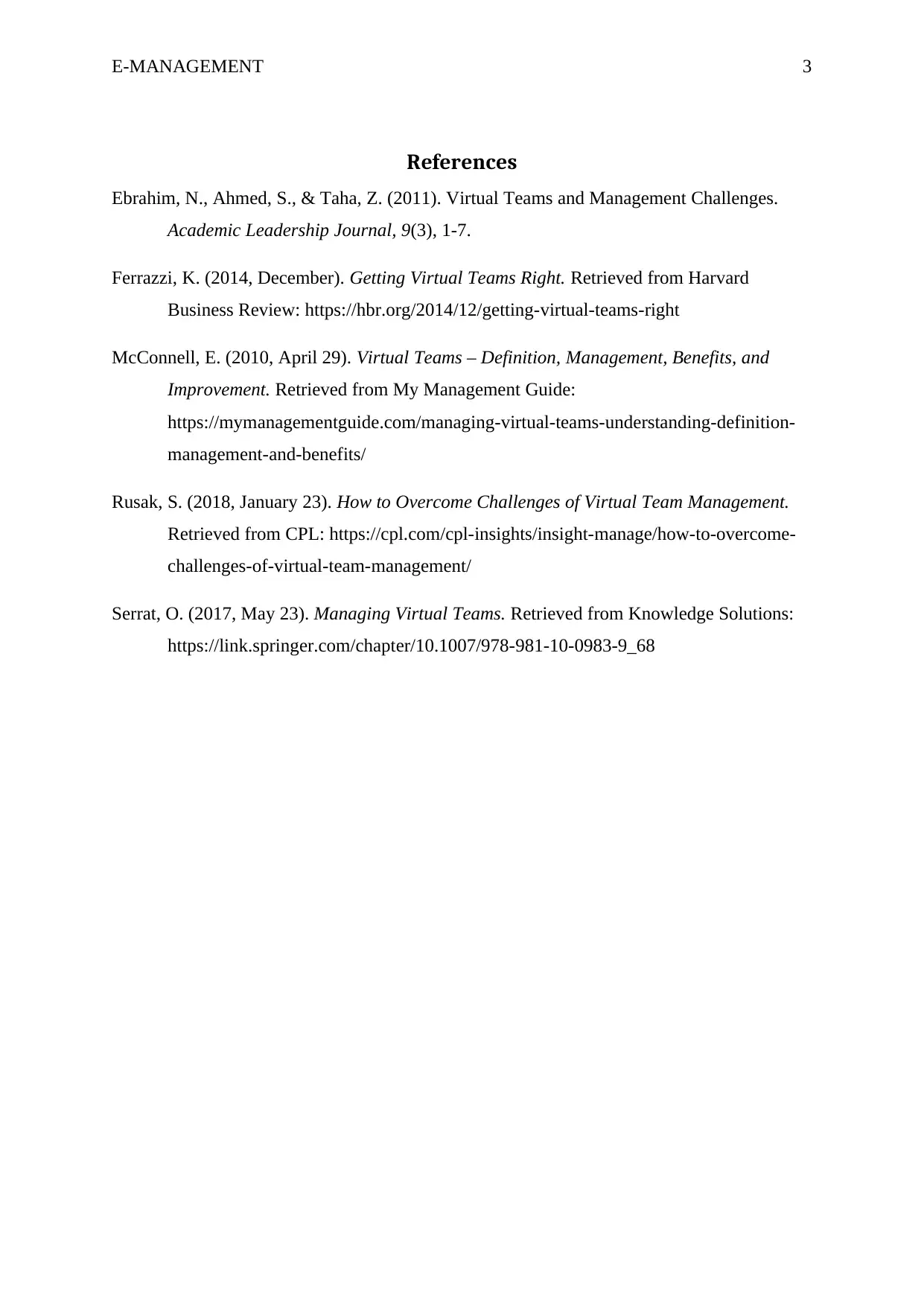Ecom201, 20/21 Sem 2: Report on Virtual Team Management Challenges
VerifiedAdded on 2022/08/14
|4
|741
|14
Report
AI Summary
This report delves into the complexities of virtual team management, addressing the challenges of communication, trust, and productivity within these increasingly common organizational structures. It defines each negative factor, explaining why they pose significant issues for team performance. Communication challenges arise from the lack of face-to-face interaction, hindering relationship-building and trust. Trust, often difficult to establish remotely, requires proactive management to ensure team cohesion and effectiveness. Productivity suffers when communication and trust are compromised, leading to misunderstandings and conflict. The report proposes practical solutions for each issue, such as fostering open communication, building trust through consistent behavior, and encouraging active participation to enhance productivity and collaboration. The analysis is supported by academic references, providing a comprehensive overview of the topic. The report is part of a student's assignment submitted to Desklib, a website offering past papers and assignments.
1 out of 4










![[object Object]](/_next/static/media/star-bottom.7253800d.svg)